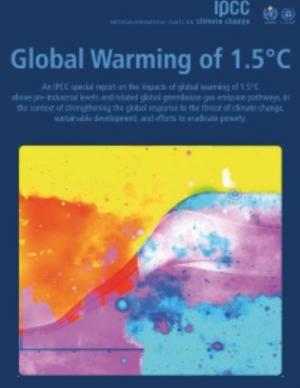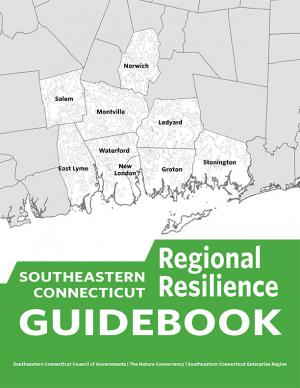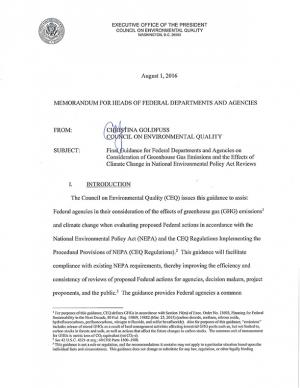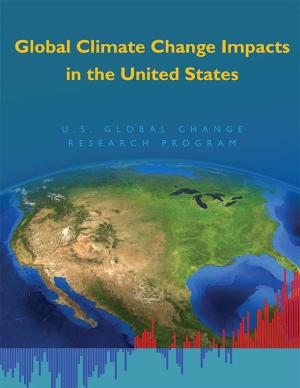Access a range of climate-related reports issued by government agencies and scientific organizations. Browse the reports listed below, or filter by scope, content, or focus in the boxes above. To expand your results, click the Clear Filters link.
The Central Council of the Tlingit and Haida Indian Tribes of Alaska (Tlingit & Haida) is a federally recognized Indian Tribe that serves 20 villages and communities stretching over 43,000 square miles within the Alaska Panhandle. The Tlingit and Haida membership is among the largest, most isolated, and most geographically dispersed of Native or Tribal populations nationwide. The region encompasses a 525-mile strip of coastline and interior waterways, bordered by Canada on the north, south, and east, with the Gulf of Alaska on the west.
The Central Council recognizes that wild salmon, berries, clams, herring, halibut, yellow cedar and other species important for subsistence, cash and culture are at risk. In response, they have released a 53-page climate change adaptation plan. The document is a roadmap for prioritizing, monitoring, and responding to threats stemming from warming air and ocean temperatures, caused by increasing levels of greenhouse gases trapped in the atmosphere.
This special report from the Intergovernmental Panel on Climate change describes the impacts of global warming of 1.5 °C above pre-industrial levels. The report also describes potential global greenhouse gas emission pathways, in the context of strengthening the global response to the threat of climate change, sustainable development, and efforts to eradicate poverty.
This guidebook results from the culmination of a year of dialogue among diverse stakeholders in southeastern Connecticut who defined challenges and solutions from extreme weather, climate change, and shifting social and economic conditions. Participants included representatives from nine municipalities, public and private utilities, public health departments, chambers of commerce, major employers, conservation organizations, academic institutions, community non-profits, and state agencies, among others. The dialogue captured six themed planning sectors (water, food, ecosystem services, transportation, energy, and regional economy) in a process that used surface and integrated solutions to address singular and multiple challenges across planning sectors. The guidebook provides a quick reference resource to help shape and inform actions that will advance a regional resilience framework for southeastern Connecticut; an accompanying Summary of Findings captures the project's final outcomes and conclusions, as well as providing a comprehensive account of the objectives, process, and details.
This document provides final guidance for federal agencies on how to consider the impacts of their actions on global climate change in their National Environmental Policy Act (NEPA) reviews, providing a framework for agencies to consider both the effects of a proposed action on climate change, as indicated by its estimated greenhouse gas emissions, and the effects of climate change on a proposed action. The memorandum applies to all types of proposed federal agency actions that are subject to NEPA analysis and guides agencies on how to address the greenhouse gas emissions from federal actions and the effects of climate change on their proposed actions within the existing NEPA regulatory framework.
Successfully negotiating climate change challenges will require integrating a sound scientific basis for climate preparedness into local planning, resource management, infrastructure, and public health, as well as introducing new strategies to reduce greenhouse gas emissions or increase carbon sequestration into nearly every sector of California’s economy. This Research Plan presents a strategy for developing the requisite knowledge through a targeted body of policy-relevant, California-specific research over three to five years (from early 2014), and determines California’s most critical climate-related research gaps.
This Synthesis Report summarizes the Fifth Assessment Report (AR5) of the Intergovernmental Panel on Climate Change (IPCC). This report distills, synthesizes, and integrates the key findings of the three IPCC Working Group contributions—The Physical Science Basis; Impacts, Adaptation, and Vulnerability; and Mitigation of Climate Change—to the AR5 for the benefit of decision makers in government, the private sector, and the general public. The report also includes findings from two Special Reports released in 2011: Renewable Energy Sources and Climate Change Mitigation and Managing the Risks of Extreme Events and Disasters to Advance Climate Change Adaptation. The Synthesis Report confirms that climate change caused by human activities is having impacts on ecosystems and human well-being across the U.S. and around the world.
The National Climate Assessment assesses the science of climate change and its impacts across the United States, now and throughout this century. It documents climate change-related impacts and responses for various sectors and regions, with the goal of better informing public and private decision making at all levels.
The assessment draws from a large body of scientific peer-reviewed research, technical input reports, and other publicly available sources; all sources meet the standards of the Information Quality Act. The report was extensively reviewed by the public and experts, including a panel of the National Academy of Sciences, the 13 federal agencies of the U.S. Global Change Research Program, and the Federal Committee on Environment, Natural Resources, and Sustainability.
This Fifth Assessment Report issued by the Intergovernmental Panel on Climate Change (IPCC) Working Group III is a comprehensive assessment by of all relevant options for mitigating climate change through limiting or preventing greenhouse gas emissions, as well as activities that remove them from the atmosphere.
This report, the first of its kind for the City of Grand Rapids, outlines the condition of the city's climate resiliency and offers recommendations for how it can both impact and adapt to climate change. The report's goal is to both spur a larger community conversation around processes that will enable Grand Rapids to become a more climate-resilient city and to spur many specific short- and near-term projects, policies, programs, and plans to mitigate the effects of climate change. The report documents projected local climate changes, their potential negative impact to low-income families, and outlines small near-term solutions that the city can make to curb or adapt to climate change. Recommendations include investing in green space and improving the city's tree canopy, improving the city's energy autonomy, and implementing green street infrastructure materials and maintenance techniques.
The Dane County Climate Change Action Council was formed in March 2013 with a mission to ensure that Dane County government was better prepared for weather extremes brought on by global climate change. The Council facilitated an internal review of county preparations and potential modifications to the operations and capital investments of the county, resulting in this report identifying Dane County’s potential vulnerabilities to weather extremes associated with global climate change and strategies to adapt to a changing climate. The report is the first step in the county’s effort to improve the resiliency of its climate-sensitive resources in the face of climate change; future steps will include cross-departmental collaborations to implement the adaptation strategies outlined in the report.
President Obama's Climate Action Plan includes a series of executive actions to reduce carbon pollution, prepare the United States for the impacts of climate change, and lead international efforts to address global climate change.
Preparation of the Strategic Climate Action Plan is an opportunity to take stock of progress related to climate change, to look forward, and to plan for the future.
This report is the Second National Climate Assessment, summarizing the science and impacts of climate change on the United States. The report discusses climate-related impacts for various societal and environmental sectors and regions across the nation. It is an authoritative scientific report written in plain language, with the goal of better informing public and private decision making at all levels.
















